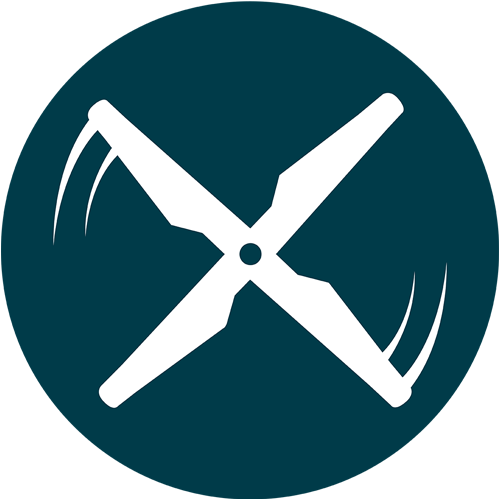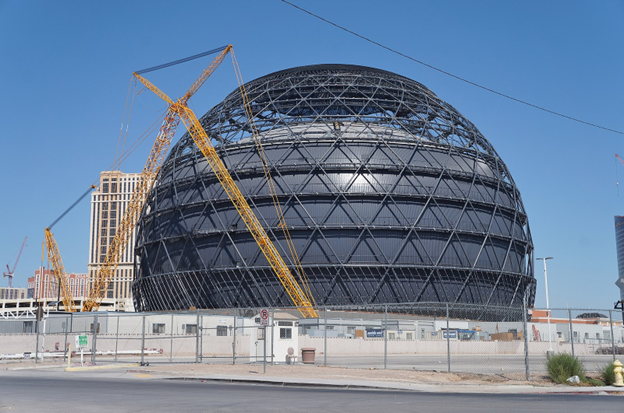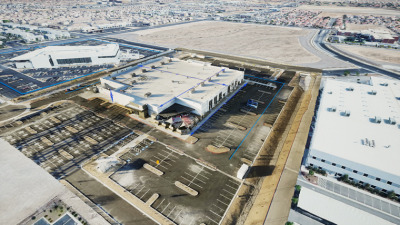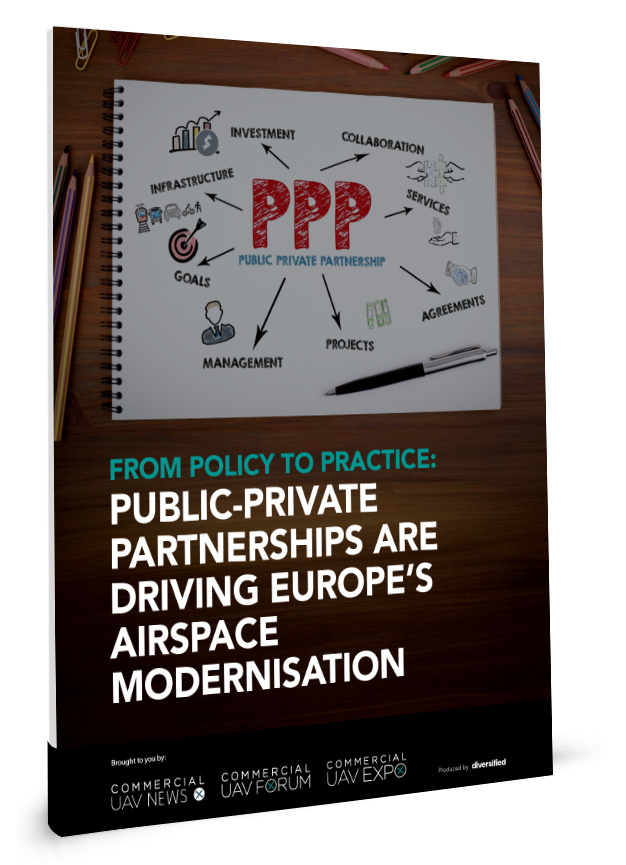We see many commercial drone operators who are amazing pilots and who deliver outstanding work to their clients but who still struggle to build a sustainable and profitable drone operating business. Does this describe you? Is it time for you to “RTL Mode” your business and re-think how you operate?
That’s what this series of articles is all about. We’re interviewing top commercial Drone Operator businesses to learn about the challenges that they’ve had—and how they overcame those challenges—in order to give you actionable insights on how to take your drone business to the next level.
Commercial UAV Expo and the Level-Up Lounge |
JCL Aerial Services
The first successful drone operator in this series is Jacob Lewis, who founded JCL Aerial Services in 2018 in Indiana and after building his business there for four years, he restarted in Vegas. But the work done in the trenches of Indiana allowed him to fast-track his growth after starting from scratch in a brand new city, where his business has left “RTL Mode” and entered into an impressive growth and profitability trajectory - and nationwide footprint.
Sweat the details
If we were to attribute Jacob’s success to one phrase, it would be “sweat the details.” Jacob understands every detail of each job from beginning to end—from mastering the legal and regulatory environment for drone operations to planning every step of a job to thinking about how to structure his fees.
To learn more, we spoke with Justin about his professional experience and business philosophy:
Eno and Justin: Jacob, tell us about the craziest job you’ve ever had.
Jacob: That would be when I filmed the construction of the Sphere in Las Vegas for National Geographic. I was able to capture the process of adding the 30x30ft panels onto the exterior. These panels are what hold the LED lights to create the amazing visuals. (BTW, if you want to see a trailer, go here. It’s absolutely amazing.) National Geographic had a tough time getting approval to use a drone because of its airport proximity. But because I know how the FAA operates, I was able to structure the paperwork to get approval very quickly. Far faster than they had ever seen. That left a big impression on them.
Eno and Justin: Did it lead to any additional work?
Jacob: Yes, many more jobs. Immediately after the Sphere, I did the Intuit Dome construction in LA because they knew I obtained air space approval. And I got the approval quickly again.
Eno and Justin: It sounded like the Sphere was a very stressful job. How did you make it successful?
Jacob: It’s all about insane preparation. There is so much out of your control. You can’t control the weather. You can’t control the site. You can’t control the people—or even sometimes your client. So, I always do multiple days of test flights and deep reconnaissance of the site. You and your visual observer need to know it inside and out. Every angle. This helps you adapt to the inherent stresses. If you don’t, you’re going to mess up and it will be difficult to focus on the task.”
Eno and Justin: You mentioned that sometimes you can’t even control the client. Tell us more.
Jacob: Well, there are always boundaries on what you can and can’t do with the drone. If I got a waiver that has a ceiling of 300 feet, then I can’t go beyond that, but I’ve had clients who tried to pressure me to break the law so they could get a different shot. That’s not easy to have to say no to the person paying you. The key is to give alternatives and not just saying no.
Eno and Justin: How do you think about your fee structure? How is that different from how you first started?
Jacob: I think when you are starting out, it’s perfectly fine to use a billable hour structure. But as you get into more sophisticated jobs, you need to be able to answer this question: Why is the client paying you and how much value am I delivering? This seems so obvious but it’s amazing how often businesses get this wrong.
Eno and Justin: Can you give us an example?
Jacob: Your client isn’t paying you to fly the drone. They’re paying for amazing cinematography. They’re paying for a pesticide to be sprayed on their field (and higher crop yield). They’re paying you to map a construction site.
Eno and Justin: That makes sense. It’s all about the end deliverable and value provided.
Jacob: That’s right. The end deliverable is the value I’m providing. Let’s go back to the Sphere. Yes, National Geographic loved that I could get the waiver quickly, but the waiver just got me in the door. What nailed it was absolutely the quality of the filming. I listened to and understood not only what the director and producer wanted but also their intent. This was part of my insane preparation I mentioned earlier too. I had to think through what they wanted when I was doing my test flights so when it came to the day of the shoot, I was proactively helping them achieve what they wanted.
Eno and Justin: How does that influence your fee structure?
Jacob: All of this means I can charge a fixed fee with a premium that others just can’t.
Interested in learning more from Jacob and other successful Drone Operators? Make sure to attend Commercial UAV Expo and meet us at the Level-Up Lounge on Wednesday, September 4, 2024.
About the Authors:
Eno Umoh is an expert in marketing and business operations and is the co-founder of Global Air Media & The Global Air Drone Academy where he has taught in 26 countries over 18,000 students about drone technology, best practices, and how to make a drone business scale and get to profit. Eno collaborates with drone businesses to help them achieve their goals.
Justin Call is the Co-Founder and CEO of Modovolo, a start-up that's built a drone to carry any payload for hours instead of minutes at a cost far below anything on the market. You'll want to see it for yourself. He has been an executive at venture capital and private-equity-backed technology and data companies with three exits ranging from $1.5 billion to $130 million. He has deep experience in leveraging data to understand and build businesses.
















Comments